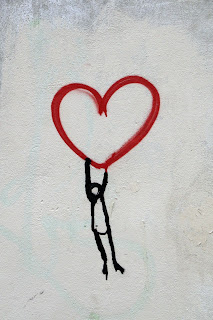Blue Sky Praise

I’m the biggest culprit. When I’m riding along on the crest of a wave I have no problems releasing spontaneous praise to God. When I’m convinced all’s well with my world and God’s in his heaven, it’s easy to feel a warm glow of thanksgiving. We can all relate to the song lyrics “blue skies smiling at me, nothing but blue skies do I see”. Blue sky days or seasons in our lives summon up a sense of joyful gratitude. It’s pretty much a kneejerk reaction. The trouble is it never takes long in the daily pulse of our lives before Mr Blue Sky becomes Stormy Monday, and on Monday praise comes, if at all, through gritted teeth. God knows our scant reserves and threadbare gratitude can and do change overnight. Why else would he give us the book of Psalms to show us how to pray and praise, in all their earthy glory? Why would the bible talk about a need for a ‘sacrifice of praise’ if God didn’t think it was worthwhile for us to offer up such a sacrifice? Let us continually offer up a





